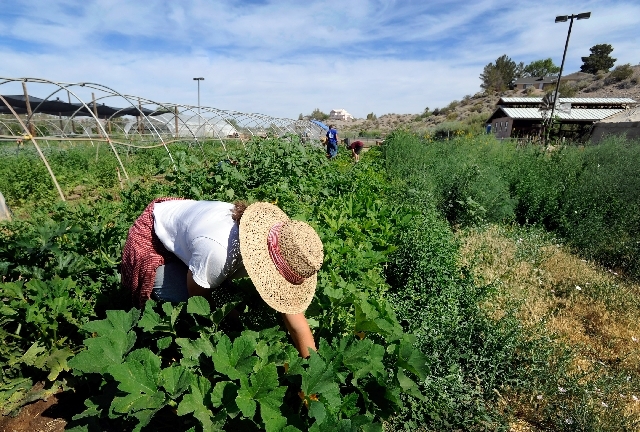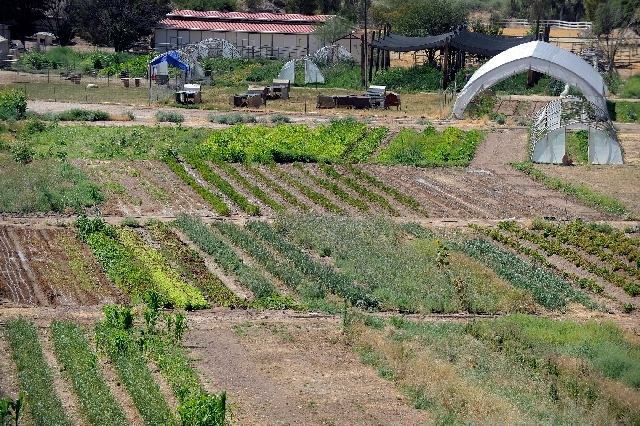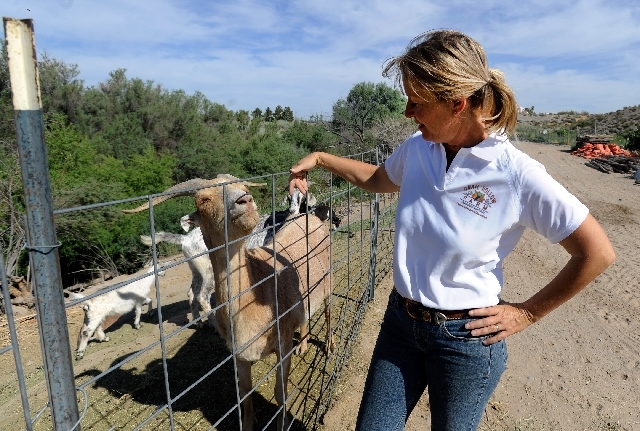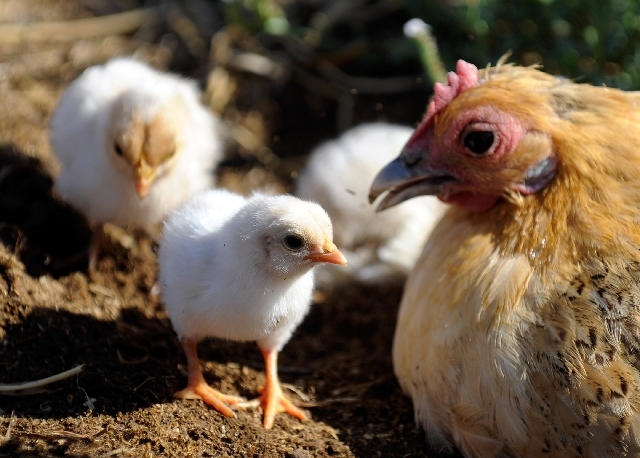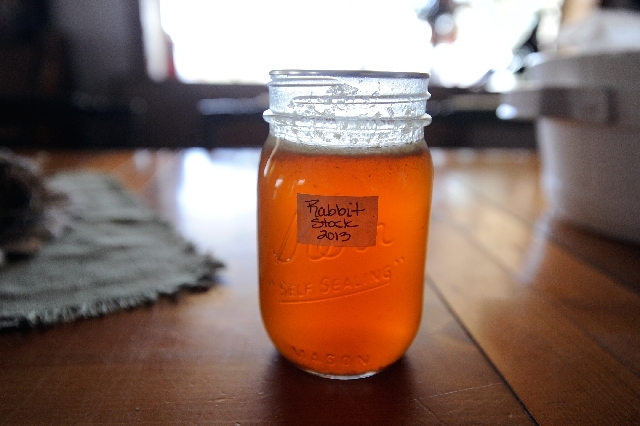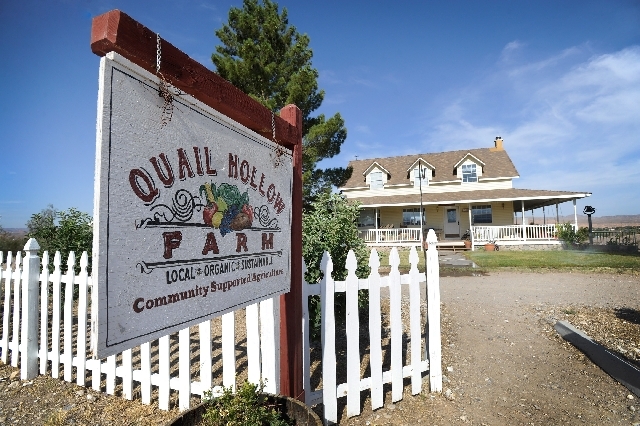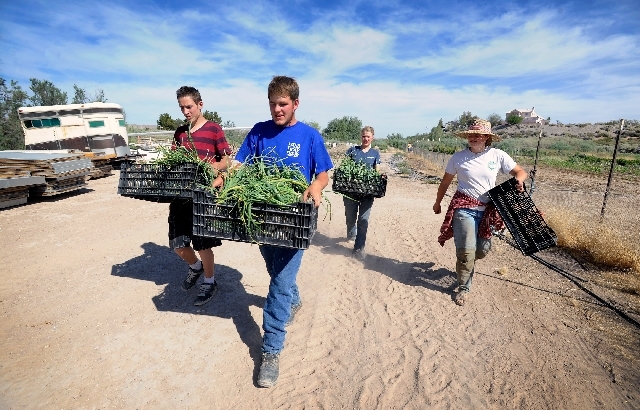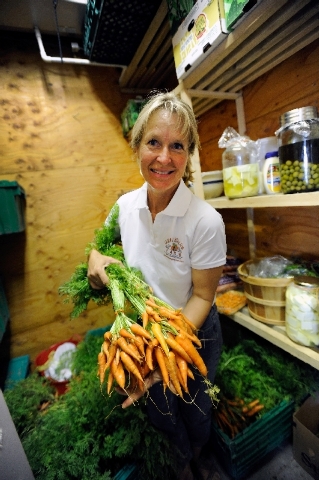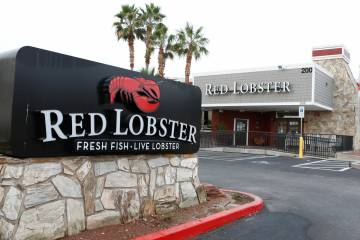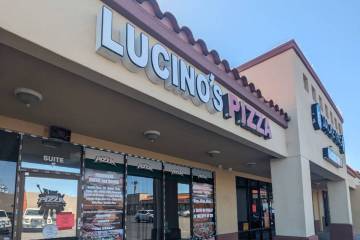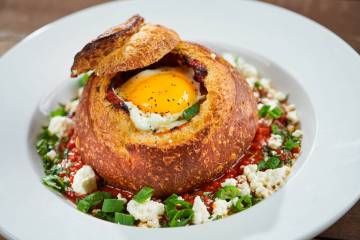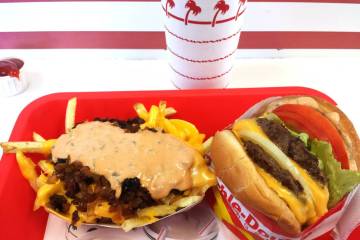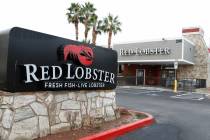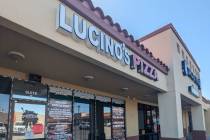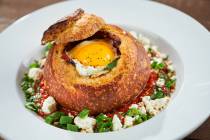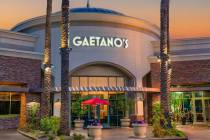Quail Hollow Farm grows into labor of love
Here’s something you don’t see in Southern Nevada every day: Three young adults, 19 to 20 years old, working in the blistering June sun, up to their ankles in dirt, clearing weeds from a plot of eggplant. They weren’t being paid, and no, it wasn’t part of a sentence, criminal or otherwise. These labors were bearing fruit strictly by the choice of the laborers.
So what gives?
Love of the land and all things agricultural, for a start, plus more than a bit of the contagious spirit spread by the owners of Quail Hollow Farm.
Quail Hollow, which is in Overton near the tiny watch-where-you’re-flying airport, is a bit of an oddity in this part of the world. Time was when the Overton-Logandale area was rich in agricultural production, with growers starting tomato plants to be sent north when it warmed up in Salt Lake City, others shipping produce south to California. Residential development, the selling off of water rights and something as basic as shifting tastes have substantially changed all that, to the point where most of the agricultural production that’s left is limited to hay.
And so this farm — just about six acres of an eight-acre parcel — is a striking exception.
Quail Hollow Farm is an example of the CSA model, for community-supported agriculture. What that means is that members of the community invest in the farm, with either money or time, and get to share in its production.
Laura Bledsoe, who owns the farm with her husband, Monte, said she was inspired to follow the model after a tour of the East that included Virginia’s Mount Vernon, Monticello and Montpelier, all of them not only the former homes of early presidents but also at one time largely self-sustaining agricultural operations, a tradition demonstrated for visitors today.
“I felt a real sense of stewardship there,” Bledsoe said. “I really felt a call, that this was something that I needed to do.”
Before launching her CSA eight years ago, Bledsoe had only had a kitchen garden, but she had the land, the energy, the ability to research and a willingness to experiment. Monte Bledsoe’s construction business was booming, so she was pretty much on her own until the recession hit; now they both work the CSA.
The project started with 12 shareholders; today there are 130. Bledsoe doesn’t advertise, although she does sometimes sell Quail Hollow farm products at Bet on the Farm farmers market at the Springs Preserve on Thursdays and the Downtown 3rd Farmers Market on Fridays.
One might wonder what prompted 130 individuals and families to invest in someone else’s farm simply for a share of the production in the form of a food basket dropped off once a week (or every other week, if desired) at one of several distribution points across the valley. (Shareholder prices, which depend on delivery point, range widely, from about $215 for six weeks of every-other-week delivery to $1,440 for 48 weekly deliveries).
But Bledsoe knows the reasons very well; a primary one, she said, is a quest for improved nutrition. Another is better food quality.
“Once you’ve had your own kitchen garden, you know the food is nothing like what you get in the stores,” she said.
Her laying hens produce pasture-based eggs, with those left over after the shareholders’ allotments always selling out in the farmers markets. The hens, Bledsoe said, are moved daily to a fresh area of the pasture.
“It produces a very good-quality egg,” she said.
And, she said, that the average carbon footprint for our food supply nationwide is 1,500 miles.
“People need a connection with where their food comes from,” she said.
One of them is Las Vegas resident Sandy Rom, who has been a shareholder since the Quail Hollow CSA’s second year.
“I feel that we might have the most adulterated food in the world,” Rom said. “The more I read, the more I Iearn, the more convinced I am of that.”
Another factor for many shareholders is the disappearance of the small American farm.
“I think it’s really important,” Rom said. “If anybody is doing farming in the local area, those people need to be supported in any way possible. Especially in the desert.”
Bledsoe said the shareholders range from families to retired couples, 90 percent of them in Las Vegas and Henderson.
“You have a personal relationship with them,” she said. “I can be out there harvesting peas, and I know, ‘Iliana is going to love these peas.’ Or a new baby is going to get homemade baby food.”
At get-togethers, she observes a wide range of personalities and political beliefs from liberal to conservative.
“Everyone is interested in food for different reasons,” she said, from a desire to save the earth to a return to basic values.
“It’s very interesting to see these groups of very different people enjoy each other,” she added.
Rom said she’s impressed by Bledsoe.
“Laura is one of the people I really, really admire a lot,” she said. “She’s an extraordinary person. There are huge challenges out there all the time.”
One of which is water, which Bledsoe said is “an obstacle, but doable,” expensive but available.
“If we would just recognize that water is useful for agriculture,” she said. “There is water available. Let’s just use it wisely.”
The climate is another challenge, but Bledsoe said they’re able to grow 12 months of the year, with July and August the most difficult times. Right now they’re working on planting heat-tolerant varieties of melons, peppers and eggplants, among other things. In mid-July, they’ll start a second planting of corn, green beans and summer squash.
They also grow 70 varieties of heirloom tomatoes, which are particularly popular.
“It’s amazing how much you can grow in a small amount of space,” she said.
She continually experiments with potential new crops.
“I love seeds,” she said. “I’m passionate about heirloom varieties.” Frequently she’ll get feedback from shareholders that there was something in their baskets that they wouldn’t otherwise have tried.
The farm also is certified biodynamic, which Bledsoe said is different from organic in that no chemicals at all are allowed; even fertilizing products have to come from the farm. Quail Hollow solves that challenge with a large compost plot where animal manure and excess vegetation are processed for their return to the earth. Like any good compost pile it’s free of objectionable odors; when Bledsoe bends down and scoops up a handful from below the surface, the only aroma is earthy and slightly sweet.
Rom gets to see for herself, since she helps out at the farm as often as possible, although less often in the heat of the summer.
“Because that’s what I love to do,” she said. “Especially on a cool morning, when the sun is shining and there’s a breeze, and you’re picking tomatoes and beans. It’s really wonderful. Not many people care for that sort of thing, but I do.”
There was nothing cool about any of the mornings last week, but on one of them, Denay Osburn, 20, and cousins Lark Milius, 20, and Sariah Mitchell, 19, were fighting the weeds.
“When the vegetable crops take off, so do the weeds,” Bledsoe said.
Osburn, who’s from Idaho, said she’s interning at Quail Hollow because she’d like to have her own kitchen garden one day.
“I love the work,” she said.
Milius, also from Idaho, is on her second internship; the first one, meant to last a few months, stretched to 13. She’s been back for about a month. Originally, her sister, a former intern, told her about it.
Mitchell, who’s from Utah, said she likes to work with the animals, which include goats, chickens, rabbits and turkeys.
“I know how to work with goats,” she said. “I realized I didn’t want to do without fresh milk.”
The goats are her favorite because each has a distinct personality, she said. Kind of like dogs?
“Better than dogs,” Milius said.
“Because,” Mitchell quipped, ”they’re useful.”
The cousins are considering a future dairy-goat operation, including cheesemaking, which they’ve already learned from Bledsoe.
And Bledsoe continues to spread the gospel. Former work shareholders Lyndy and Bryce Omer have started their own CSA, Meadow Valley, in Moapa. They have about 25 shareholder families, and also sell at Bet on the Farm.
“We wanted to move and we wanted a better, more sustainable form of income,” Lyndy Omer said. “Something where we were doing something good for the community while making an income at the same time. We like eating healthy. We wanted to share eating healthy with others.
“We thought we could do a good thing.”
“We love to see that,” Bledsoe said. “We really want to support agriculture in Southern Nevada.”
Contact reporter Heidi Knapp Rinella at hrinella@reviewjournal.com or 702-383-0474.



